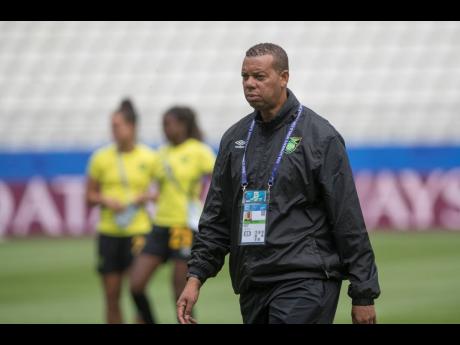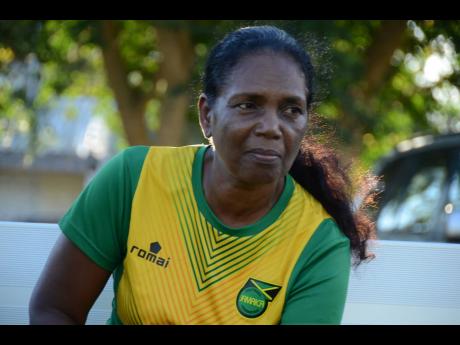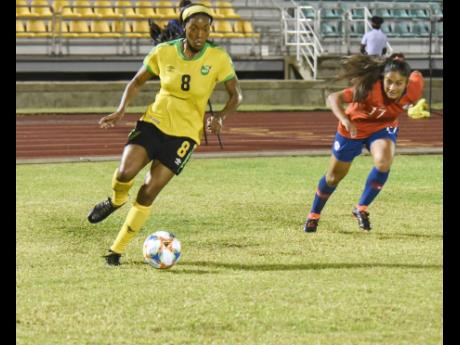Busby hails progressive FIFA maternity reforms
National senior women’s football team head coach Hubert Busby says that the new rules proposed by FIFA to protect female players’ maternity rights is a positive first step in professionalising women’s football.
FIFA announced last Thursday that measures are being put in place to protect female players before, during, and after childbirth as clubs are instructed to provide players with at least 14 weeks of maternity leave while receiving approximately two-thirds of their full salary.
Busby said that the rules would allow for better representation for women in the sport and that players would no longer need to make a tough decision by choosing between playing the sport and childbirth because the laws are now in place to protect them.
“It’s vitally important, and, obviously, I would say, it’s long overdue,” he said. “The players now truly have the opportunity to not have to choose between their careers, and, obviously, motherhood and starting a family. They can do both, like other women can in other workforces and other professions.
“We’re, obviously, excited, encouraged ,and hopeful, and it brings a whole focus on other changes regarding protecting football athletes and their longevity in the game.
“We have players that have gone on maternity leave, and, obviously, they want to return to play and will continue to do so. Again, I really think it is about what it means for the future of women players, who now, will not have to wonder what that means for their careers.”
Busby said that despite being appreciative of the maternity rights rules, more must be done regarding female players being represented financially in relation to their male counterparts.
“We know that women will never get the exact pay as the men, based on the money that’s involved currently,” he said. “But, hopefully, we can close the gap in terms of things outside of tha,; and we can ensure that the women aren’t playing from pay cheque to pay cheque.
“And so, they are the world’s best in their profession and their compensations, salaries, and all things that are involved with women’s football should reflect that. However, we’re not there yet, and, hopefully, this is a start to many other positive changes towards having equal status.”
Reggae Girlz manager Jean Nelson said that athletes such as Allyson Felix, who has advocated for better maternity compensation for female athletes, has helped to bring attention to the rights of women in all sporting disciplines. Nelson says that it would be a key step for Jamaica to be able to adapt these principles in the future.
“I think FIFA has made a step in the right direction, especially, sometimes, the females are the ones that are behind in certain circumstances, and it is good for the sport and the welfare of the players,” she said. “I think it’s really good, and when you look at players such as Cheyna Matthews, who just had her second child, and she will be benefiting from it, it’s a step in the right direction.
“Usually, a lot of them start their families when they stop playing football, like Christina Chang, as she went and had her baby after the World Cup last year, and during that time, she said she really wanted to play, so she put it on hold, and after that, she went and had her baby.
“In terms of adapting those rules locally, it could happen, but sometimes finance is a major factor. If we are able get our women’s league to the professional level, which will be difficult at the current moment, it will be a step in the right direction to take that into consideration if we’re going to have the professionalism that we need.”
The rules are expected to be sanctioned by the FIFA council in December and are expected to come into effect on January 1.
Athena Clarke



